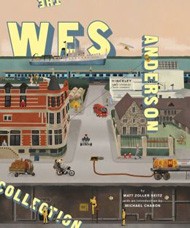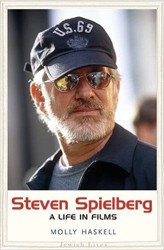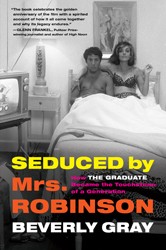Reviewers advise the general public whether to see (read, hear, visit, etc.) created works. They help us flip a coin. Critics help a smaller public re-examine works already read (heard, viewed). They lend us their eyes and ears, their comprehension of the social, political, spiritual, and technical history of the art. Movie reviewers abound, and like movie stars, they are crowned and deposed according to popular taste. Great film critics are rarer. In the brief century of the art form’s existence, no other critic has had the breadth, grace, and sureness of style to match Stanley Kauffmann, who passed away recently at age ninety-seven, in his fifty-fourth year of writing film criticism for The New Republic (see http://newrepublic.com/authors/stanley-kauffmann for contemporary pieces). Ten Great Films is a rich collection of ten essays written mostly in the 1970s that show the growth of film from its silent beginnings to the art form it has become.
Three of the films are silents: by Eisenstein, Griffith, and Chaplin; the “talkies” are in French, by Renoir; in Japanese, by Kurosawa and Ozu; in Italian, by Antonioni and Fellini; in Swedish, by Bergman; and in American English, by Wilder. Only the first and last mentioned directors were born Jewish, and Eisenstein, though he suffered an anti-Semitism he refused to acknowledge, had religious faith only in Communism. Billy Wilder, a double European ex-patriot skipping only steps ahead of a spreading Nazi wave, absorbed the European Jewish film culture and spread it into several major American films before implanting it in that wonderful farce, Some Like It Hot.
Kauffmann thinks Grand Illusion is an erroneous English title for Claude Renoir’s La Grande Illusion. “As every French high school student knows,” he reminds us, “this means The Big Illusion.” Kauffmann shows how Renoir fuses a panoply of sustaining beliefs “that will be turned into an illusion by the passage of time, like the larger beliefs of class and of war-with-a-purpose.” One sustaining illusion is mindless anti-Semitism, seen when two escaped prisoners, Maréchal, a working-class Gentile, and Rosenthal, a rich Jew, form a friendship necessary to get them safely over the border under fire from Nazi patrols. Kauffmann remarks, “We know… [Maréchal] … really does have anti-Semitism in him and that Rosenthal knows it and is prepared to live with it because he knows that Maréchal regrets having it…” This insight supports Kauffmann’s assessment that Renoir is… “among the most humane of men; and your admiration for him grows for his insistence on drawing Rosenthal with honesty, instead of making him a saintly martyr, as counterpropaganda against the times.” It is but a small sample of what makes these ten essays “Great.”
Kauffmann places every film, and every great personality working before or behind the camera, on a directorial learning curve of absorption and transformation — from ninteenth century theater acting, to the melodrama of early silent film, to sophisticated camera movements and splicings for multiple points of view, to letting single protagonists give way to multiple, to opening black holes of personality or of purpose and making the story a search to fill them, to creating, and satisfying, audience expectations in unlikely dodges and reversals. Along the way we come to appreciate Chaplin’s clown as “a comic character whose standards are better than our own… an unsententious agent of exemplary values… In his magical movement and in his code, even in his cunning, he is what we feel we ought to be.” And we see how physical rendition of a superb script makes Some Like It Hot timeless.
Each of Kauffmann’s ten essays, if savored between fore-and-aft viewings of its titled film, will transform entertainment into — the goal of criticism — abiding appreciation.





